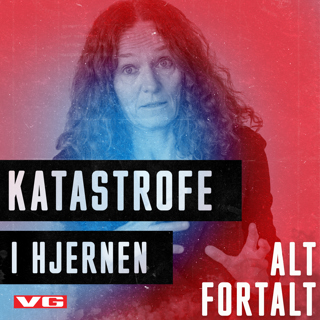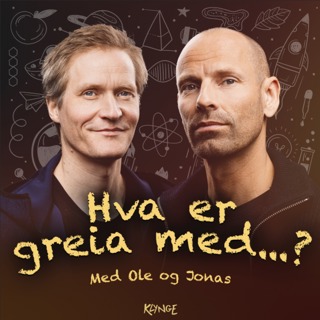
Matt Dawson “Social Theory for Alternative Societies” (Palgrave, 2016)
What can social theory offer to visions of an alternative society? In his new book, Social Theory for Alternative Societies (Palgrave, 2016), Dr Matt Dawson, a Lecturer in Sociology at the University of Glasgow, explores how classical and contemporary social theory has grappled with this question. The book proposes three starting points for a vision of the good society, beginning with the identification of a social problem, through the suggestion of an alternative, to the justification for the alternative’s way of solving the social problem. Drawing on classical social theory from Du Bois, Durkheim and Marx, through to more recent ideas from Feminism, Cosmopolitanism, Neo-Marxism and Public Sociology, the book provides a new take on social theory as well as thinking through the meaning of what a good society might be. Dave O’Brien is the host of New Books in Critical Theory and is a Senior Lecturer in Cultural Policy at the Institute for Cultural and Creative Entrepreneurship, Goldsmiths College, University of London. His research covers a range of areas between sociology and political science, including work on the British Civil Service, British Cultural Policy, cultural labour, and urban regeneration. His most recent books are Cultural Policy: Management, Value and Modernity in the Creative Industries and After Urban Regeneration (edited with Dr. Peter Matthews). He tweets @Drdaveobrien. Learn more about your ad choices. Visit megaphone.fm/adchoices Support our show by becoming a premium member! https://newbooksnetwork.supportingcast.fm/critical-theory
9 Sep 201641min

Ibram X. Kendi, “Stamped from the Beginning: The Definitive History of Racist Ideas in America” (Nation Books, 2016)
Ibram X. Kendi is an assistant professor of African American history at the University of Florida. Stamped from the Beginning: The Definitive History of Racist Ideas in America (Nation Books, 2016) offers a fast moving narrative of racist ideas beginning with the Puritan theologian and preacher Cotton Mather to the post-racial color-blind arguments in the age of Barack Obama. Through American history, racism has been justified by appeals to God’s word, science, nature, or common sense. He demonstrates how good intentioned efforts to overcome racism have often helped to cement racist ideas. The ideas of segregation and assimilation have rationalized racism and have reproduced and spread in the face of challenge by antiracist arguments. Americans have unsuccessfully attempted to root out racism through notions of self-sacrifice, “uplift suasion,” and educational persuasion. Kendi argues that overcoming racism, which hides classism and sexism, will require intelligent self-interest, not altruism. Americans, regardless of color, need to realize that when Black people are free of racism all will be free. Lilian Calles Barger, www.lilianbarger.com, is a cultural, intellectual and gender historian. Her current book project is entitled The World Come of Age: Religion, Intellectuals and the Challenge of Human Liberation. Learn more about your ad choices. Visit megaphone.fm/adchoices Support our show by becoming a premium member! https://newbooksnetwork.supportingcast.fm/critical-theory
8 Sep 201657min

John A. Gronbeck-Tedesco, “Cuba, the United States, and the Cultures of the Transnational Left, 1930-1975” (Cambridge UP, 2015)
John A. Gronbeck-Tedesco’s new book, Cuba, the United States, and the Cultures of the Transnational Left, 1930-1975 (Cambridge University Press, 2015), reaches across the Atlantic ocean and connects journalists, musicians, activists and poets as they moved between Cuba and the United States in the turbulent eras of revolution. Covering 1933 as well as 1959 allows Gronbeck Tedesco to make fresh observations about the intellectual and political climates of those moments as well as to point to important continuities. The ambitions and disillusionment that permeated the novels, plays, poetry and leftist politics frame this book, making it required reading for anyone interested in the fraught and conflictual intimacies between the two nations and those who journeyed back and forth. Learn more about your ad choices. Visit megaphone.fm/adchoices Support our show by becoming a premium member! https://newbooksnetwork.supportingcast.fm/critical-theory
29 Aug 201650min

Jean Chalaby, “The Format Age: Television’s Entertainment Revolution” (Polity, 2015)
Television had been transformed by the rise of the format. In The Format Age: Television’s Entertainment Revolution Jean Chalaby, Professor of International Communication at City University London, charts the beginnings of the format for TV shows, through the globalization of the trade in TV formats, to conclude with reflections on the future of local and global TV markets. The book uses an eclectic set of theoretical frames, including Global Value Chains, World Systems Theory and work of the Annales School, to chart the political economy of the TV format. Using a wide range of examples, detailed case studies of local markets and local production systems (including the UK), the book shows how the format is now crucial to the modern television industry encompassing everything from the game show to the long form drama. The book will be of interest to all media and communications scholars, as well as anyone keen to know why we have the sorts of television programmes we have on our screens. Learn more about your ad choices. Visit megaphone.fm/adchoices Support our show by becoming a premium member! https://newbooksnetwork.supportingcast.fm/critical-theory
29 Aug 201641min

Peter Trawny, “Heidegger and the Myth of a Jewish World Conspiracy” (U. of Chicago Press, 2015)
In Heidegger and the Myth of a Jewish World Conspiracy (University of Chicago Press, 2015), Peter Trawny, professor of philosophy and founder and director of the Martin Heidegger Institute at the University of Wuppertal, explores the place of anti-Semitism in Martin Heidegger’s philosophy. Using Heidegger’s recently published Black Notebooks, Trawny explains that the philosopher’s anti-Semitism was not just a few stray remarks, but was deeply incorporated into his philosophical and political thinking. Learn more about your ad choices. Visit megaphone.fm/adchoices Support our show by becoming a premium member! https://newbooksnetwork.supportingcast.fm/critical-theory
15 Aug 201621min

Jack Jacobs, “The Frankfurt School, Jewish Lives, and Antisemitism” (Cambridge UP, 2015)
In The Frankfurt School, Jewish Lives, and Antisemitism (Cambridge University Press, 2015), Jack Jacobs, Professor of Political Science at John Jay College and the CUNY Graduate Center, investigates how the Jewish backgrounds of major Critical Theorists, and the ways in which they related to their origins, impacted upon their work, the history of the Frankfurt School, and differences that emerged among them over time. Jacobs builds an in depth picture of these theorists, particularly in relation to their theorization of antisemitism and their attitudes towards Israel. This book is a definitive history of the topic which will be referenced for many years to come. Max Kaiser is a PhD candidate at the University of Melbourne. He can be reached at kaiser@student.unimelb.edu.au. Learn more about your ad choices. Visit megaphone.fm/adchoices Support our show by becoming a premium member! https://newbooksnetwork.supportingcast.fm/critical-theory
2 Aug 201647min

Eric Schickler, “Racial Realignment: The Transformation of American Liberalism, 1932-1965” (Princeton UP, 2016)
Eric Schickler is the author of Racial Realignment: The Transformation of American Liberalism, 1932-1965 (Princeton University Press, 2016). Schickler is the Jeffrey and Ashley McDermott Professor of Political Science at the University of California, Berkeley. Much scholarship on the racial realignment of U.S. political parties argues for an elite based explanation focused on Washington and national figures. Schickler’s new book challenges this notion with a deep-dive into the archives. He argues that rather than a top-down explanation, party realignment happened from the bottom-up. He credits the long history of the Civil Rights movement, emergence of new players in organized labor, and state and local forces. Realignment, then, is a gradual process that occurred over decades, rather than primarily in the 1960s. Learn more about your ad choices. Visit megaphone.fm/adchoices Support our show by becoming a premium member! https://newbooksnetwork.supportingcast.fm/critical-theory
1 Aug 201620min

Russell Rickford, “We Are an African People: Independent Education, Black Power and the Radical Imagination” (Oxford UP, 2016)
Russell Rickford is an assistant professor of history at Cornell University. We Are an African People: Independent Education, Black Power and the Radical Imagination (Oxford University Press, 2016) offers an intellectual history of the Pan African nationalist schools that emerged in the late 1960s from dissatisfaction with urban school desegregation and its failure to provide an equal education and foster racial pride. Influenced by Third World theories and African anti-colonial campaigns, these black institutions promoted self-determination and black political sovereignty. Beginning with the campaigns for the community control of schools to visions of a Black University, Rickford identifies the key ideological strengths and weaknesses that ultimately resulted in the failure to build strong independent institutions necessary for cultural renewal. The Afrocentric ideas and schools that survived were congruent with a neoliberal ideology that elided the socio-economic conditions of African Americans. Lilian Calles Barger, www.lilianbarger.com, is a cultural, intellectual and gender historian. Her current book project is entitled The World Comes of Age: Religion, Intellectuals and the Challenge of Human Liberation. Learn more about your ad choices. Visit megaphone.fm/adchoices Support our show by becoming a premium member! https://newbooksnetwork.supportingcast.fm/critical-theory
31 Jul 201655min




















